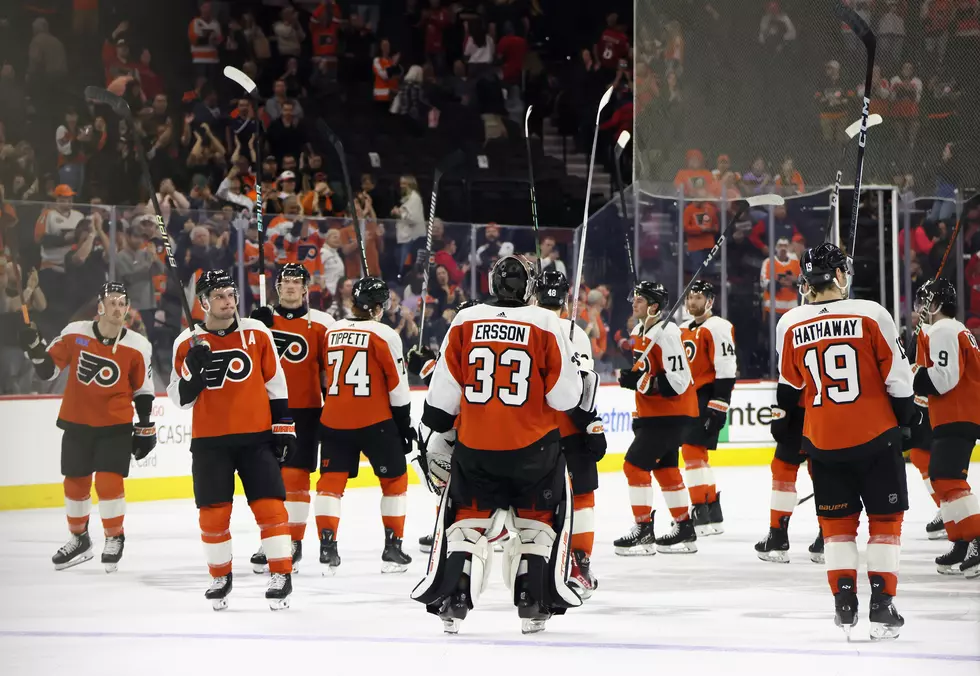
Around the NHL: Previewing a Lightning-Stars Stanley Cup Final
After a four and a half month pause and seven weeks safely playing inside the Toronto and Edmonton bubbles, two teams remain and the 2020 Stanley Cup Final is finally set. The series will begin on Saturday night between the Tampa Bay Lightning and Dallas Stars.
Tampa Bay has long-awaited this moment. After reaching the Stanley Cup Final in 2015, the Lightning have been widely regarded as the team to beat in several seasons, none more than the 2018-19 season when they won 62 games in the regular season only to get swept in the first round by the Columbus Blue Jackets. Now, they are back again and have an even more talented roster poised to claim the Lightning’s second Stanley Cup in franchise history and first since 2004.
On the other side, the Dallas Stars were seemingly the forgotten team of the return-to-play in the West. Among the four Round Robin teams, they were the one that wasn’t given a shot. They played through multiple trials and tribulations throughout the regular season, then powered their way back within each series to find a way to reach the final. They are certainly a dangerous bunch that is also looking to claim the franchise’s second Stanley Cup and first since 1999.
Here is a preview of the series, including each team’s candidates for Conn Smythe, how they got to the Final and what they need to do to win the Cup.
Tampa Bay Lightning
How They Got Here
The Tampa Bay Lightning started the season off with relatively average results, going 6-5-2 over the first 13 games of the season before taking a trip to Stockholm, Sweden for the Global Series against the Buffalo Sabres. They won both games in Sweden, but even as November and December passed, were still posting about a .500 record, going 17-13-4 through Dec. 21.
That’s when the first streak began and the Lightning became a white hot team for the remainder of the year. They defeated the Florida Panthers, 6-1, on Dec. 23 entering the holiday break, then returned with three more wins before the end of 2019. To start 2020, they won the next six games, capped off by a 1-0 win in Philadelphia on Jan. 11 for their 10th straight win. They lost the next night against the New Jersey Devils and lost three of the five total, but then started another winning streak on Jan. 29 that last for another 11 games, completed with a 4-3 overtime win in Colorado.
After posting a record of 23-2-1 from Dec. 23 to Feb. 17, the Lightning lost the next four games and won just three of their next 10 games when the pause hit in March. They completed the regular season with a 43-21-6 record, good for second place in the Eastern Conference.
The Lightning were widely viewed as a team that had a great chance to secure the top seed in the East in the Round Robin, and won their first two games of the tournament by a 3-2 score, one in a shootout against Washington and another on a late goal against Boston. That set up a winner-take-all game against the Flyers on Aug. 8. The 4-1 loss secured that the Lightning would maintain the second seed in the playoffs. To date, it is their most-lopsided defeat in the playoffs.
Tampa’s first game in the first round proved to be historic. The Lightning and Columbus Blue Jackets played into the night, going into five overtimes before Brayden Point ended the game with his second goal of the game. After a Game 2 loss, the Lightning won the next three games, all by one goal, with Anthony Cirelli tying Game 5 with 1:38 to play in the third and Point scoring another OT winner 5:12 into sudden death to advance the Lightning to the second round.
A divisional matchup was on tap for the second round as the Lightning and Boston Bruins faced off. Boston opened up a 3-0 lead in Game 1. Victor Hedman scored twice in the third, but the Bruins had enough of a lead to take the victory.
The Lightning and Bruins went back and forth in Game 2, with each team scoring a goal in the third to force overtime, but Ondrej Palat struck at 4:40 of overtime to even the series. The Lightning dominated Game 3, 7-1, and opened up a 3-0 lead in Game 4 that held up in a 3-1 victory.
In Game 5, Boston made a push getting the tying goal with 2:33 remaining in the third to force overtime and out-shooting the Lightning 46-28 through 80 minutes of play. In the second overtime, the Lightning out-shot the Bruins, 7-1, and Hedman delivered the game-winning goal to move the Lightning into the conference finals.
That set up a date with the New York Islanders, and after waiting a week between games, Tampa was ready for the Islanders in Game 1, securing an 8-2 win. The Islanders looked poised for a win in Game 2, but a goal by Nikita Kucherov with 7.8 seconds remaining in the third handed the Lightning the win and a 2-0 series lead.
The Islanders fought back with a 5-3 win in Game 3, but the Lightning dominated Game 4, 4-1, to open up a 3-1 series lead. Each of the remaining games of the series were low-scoring and required overtime. The Islanders prevailed in Game 5 with a goal by Jordan Eberle in the second overtime. In Game 6, Cirelli played hero, scoring at 13:18 of overtime to advance the Lightning to the Stanley Cup Final.
Conn Smythe Leaders
It’s hard to argue that Victor Hedman has been the most valuable player for the Lightning so far in the playoffs. Their most-lopsided loss, the 4-1 defeat to the Flyers, came primarily without him after Hedman left the game in the first period. In the very next game, he played 57:38 in five overtimes.
Hedman also is tied for the team-lead with nine goals and has 15 points, all while averaging 26:31, the highest average ice time for a player still playing in the playoffs. While he’s not close to being the points leader in the NHL in the playoffs, so much of what he does on the defensive end goes unnoticed while being an offensive force for this team.
Outside of Hedman, two candidates have emerged. Nikita Kucherov is leading the NHL with 26 points in the playoffs, including 20 assists. Brayden Point has missed some time with injury, but his absence is certainly noticeable, especially when you look at what he brings on the stat sheet. Point has nine goals and 25 points in the playoffs.
What the Lightning Need to Do to Win
The Lightning have taken down every team in their way by really limiting what ice is available and using their speed and skill to counter. This is a deep team and there are a lot of players capable of contributing. For as much as you will hear Kucherov, Point, Palat and Hedman driving things, there are a lot of depth forwards - like Cirelli who provided the Game 6 heroics - and defensively, this team is deep with veterans Kevin Shattenkirk and Ryan McDonagh and the rising talent of Mikhail Sergechev. It also helps to have a perennial Vezina candidate in Andrei Vasilevskiy in net.
It’s feeling a lot like Tampa’s time, and after reaching the Stanley Cup Final in 2015 with a lot of these players, they seem poised to finally claim the Cup. To do that, they need to continue to be a team that defends well and creates offense as a result. They rarely allowed the Islanders to counter and goals that they did allow took an incredible amount of work from the opposition.
Their opponent in the Final certainly knows how to work and how to adjust to different styles of play, but this will be the toughest test yet, because the Lightning are arguably the deepest and most-talented team in the league. There’s a reason the Lightning were a popular preseason pick, and even if it’s taken over a calendar year to get to this point in the schedule, it’s no surprise to see the Lightning in this spot.
Dallas Stars
How They Got Here
The journey to reach the Stanley Cup Final this season is a year-long tale. The Dallas Stars have had quite a year.
The Stars opened the season with three straight losses, finally scored their first win by beating the Washington Capitals in their fourth game, then dropped the next five games with an 0-4-1 record to start the season 1-7-1. A win in Philadelphia on Oct. 19 started a three-game winning streak and a 14-1-1 stretch that brought their record to 15-8-2 through 25 games.
After a four-game losing streak and a three-game winning streak, the Stars went back and forth with wins and losses until a six-game winning streak that included a 4-2 win over Nashville in the 2020 Winter Classic on New Year’s Day.
During that stretch of games, there was a key change made. Head coach Jim Montgomery was fired for “unprofessional conduct inconsistent with the core values and beliefs of the Dallas Stars and the National Hockey League.” Montgomery later released a statement announcing that he had entered a program for alcohol abuse in January.
Rick Bowness took over as the interim head coach, and while the Stars posted a modest 20-13-5 record under Bowness for the remainder of the regular season, the Stars limped into March and lost what would become their final six regular-season games. At the time of the pause to the COVID-19 pandemic, the Stars were clinging to the fourth-seed in points percentage with a 37-24-8 record.
In the Round Robin, the Stars didn’t look much better. They had a 3-1 lead against Vegas and surrendered four third-period goals to lose. They were no match for the Colorado Avalanche in a 4-0 loss. In a game against St. Louis for the third seed, it took a goal by Joe Pavelski with 32 seconds left to force overtime, where Dallas claimed victory in a shootout.
Since then, the Stars have been a resilient bunch. They lost Games 1 and 3 to Calgary and only won Game 2 with a last-minute goal by Jamie Oleksiak after losing a 4-2 lead. In Game 4, they were seconds away from falling behind in the series, 3-1, when Pavelski got another last-minute goal with 12 seconds remaining to tie the game at four. Alexander Radulov won the game at 16:05 of overtime.
Following a 2-1 win in Game 5, the Stars were flirting with a Game 7 against the Flames when Calgary took a 3-0 lead in the first period of Game 6. The Stars responded with seven unanswered goals, including four from Denis Gurianov, to advance to the second round.
The Stars opened up a 2-0 series lead with 5-3 and 5-2 wins over the Colorado Avalanche to start the second round, then had Game 3 in their sights when they scored three goals to erase a 3-1 deficit and take a 4-3 lead. Colorado responded with three goals in the final eight minutes to take Game 3, but the Stars had announced their presence and carried some of the momentum into Game 4 with three goals in the first period in an eventual 5-4 win to take a 3-1 series lead.
Colorado gave the Stars a friendly reminder of what happened in Round Robin in Game 5, taking a 5-0 lead in the first period and rolling to a 6-3 win to force Game 6. With the momentum on their side, the Avalanche continued their comeback with a 4-1 win to force Game 7.
Game 7 was a classic. Dallas struck early on the power play, but Colorado answered with two goals before the period was over. In the second, the two teams traded goals and Colorado took a 3-2 lead to the third. Radulov’s second power-play goal of the game tied things up at three at 11:28 of the third, setting up an exciting finish.
With 3:40 remaining in the third, the Avalanche took the 4-3 lead with Vladislav Namestnikov’s second goal of the game. Ten seconds later, Joel Kiviranta, making his playoff debut, scored his second of the game to tie it back up and force overtime.
Kiviranta was the hero again in overtime, completing the hat trick at 7:24 to help the Stars advance to the Western Conference Final.
That set up a date with the Vegas Golden Knights, the No. 1 seed out of the West. The Stars made the first move, getting an early goal from John Klingberg in a 1-0 shutout win in Game 1. Vegas pushed back and played a game more fitting of their style to even the series with a 3-0 win in Game 2.
The Stars resolve and goaltending came through in a big way in Game 3. The Stars were out-shot, 40-23, but scored the first goal of the game late in the second with Oleksiak scoring on a breakaway. Vegas tied the game with a power-play goal by Shea Theodore early in the third, but Dallas took the lead again with a goal by Jamie Benn at 7:35. With just over eight minutes remaining in the third, Mark Stone scored the tying goal and the game would require overtime. There was one shot in overtime, as Radulov came through again with the game-winner just 31 seconds in to give the Stars a 2-1 series lead.
Game 4 was another defensive battle where Vegas clearly won the shots battle, 33-20. Vegas also got the first goal of the game at 7:44 of the second with Alec Martinez scoring on a power play. Pavelski tied the game less than four minutes later, and with just 59 seconds left in the period, Benn scored on the power play to give the Stars the lead. Dallas held down the fort the rest of the way as Anton Khudobin once again shined and the Stars were one win away from the Stanley Cup Final.
Vegas scored the first goal of Game 5 with Chandler Stephenson getting on the board, then took a 2-0 lead on Reilly Smith’s first goal of the series to put them in the driver’s seat. But the resilience of the Stars powered through again. Benn scored at 9:54 and Kiviranta tied the game with a power-play goal with 3:47 remaining in third. Early in overtime, Zach Whitecloud took a delay-of-game penalty and the Stars capitalized, as Gurianov fired a one-timer by Robin Lehner to lift the Stars to the win and become the Western Conference champions.
Conn Smythe Leaders
Without question, the Stars most valuable player in the playoff run has been Anton Khudobin. The netminder has a 12-6 record in the playoffs with a 2.62 GAA and .920 save percentage. He leads the league with 610 shots against. The numbers may not appear to be the greatest, but the numbers from the Colorado series featured a lot of scoring and heavy shot volumes. Khudobin played one of those games in relief, making 20 saves on 22 shots, and faced 30 or more shots in five of his six starts. Against Vegas, Khudobin was outstanding, allowing eight goals on 161 shots, a .950 save percentage, when it matters most.
Outside of Khudobin, there are a handful of other players emerging as possibilities for the Conn Smythe. In 21 playoff games, Miro Heiskanen has 22 points, including 17 assists. Jamie Benn was especially excellent in the conference final, and his eight goals and 18 points in the playoffs have carried Dallas’ forward group. Denis Gurianov has shown a knack for scoring big goals and his nine goals are tied for the team lead with Joe Pavelski. Gurianov also has 17 points, third on the team. And don’t discount Joel Kiviranta as a bit of a longshot. He has scored four big goals and has five points in eight games.
What the Stars Need to Do to Win
For the Stars, it all starts at the back end. They have some nice depth at forward, but their defensemen have really helped power the offense.
What helps to make Jamie Benn, Alexander Radulov, Denis Gurianov, Joe Pavelski and others so dangerous is the speed and skill that Miro Heiskanen and John Klingberg provide. The Stars also get dependable play at both ends of the ice from Esa Lindell, Jamie Oleksiak and Andrej Sekera and Joel Hanley has stepped in nicely in the last six games in the absence of Stephen Johns and Taylor Fedun.
The trust that this team has in the defensemen and in goaltender Anton Khudobin is what will carry this team. They took a high-powered Vegas offense and held it to eight goals because of strong defensive positioning that kept a lot of the play to the perimeter and great goaltending when quality chances did emerge.
That’s what it will take in the Stanley Cup Final. Keep playing a strong defensive game and take advantage of the offensive opportunities and the Stars could be hoisting the Stanley Cup for the second time in franchise history.
Kevin Durso is Flyers insider for 97.3 ESPN and Flyers editor for SportsTalkPhilly.com. Follow him on Twitter @Kevin_Durso.
KEEP READING: Flyers Top Goal Scorers Each Year Since 2010
More From 97.3 ESPN









